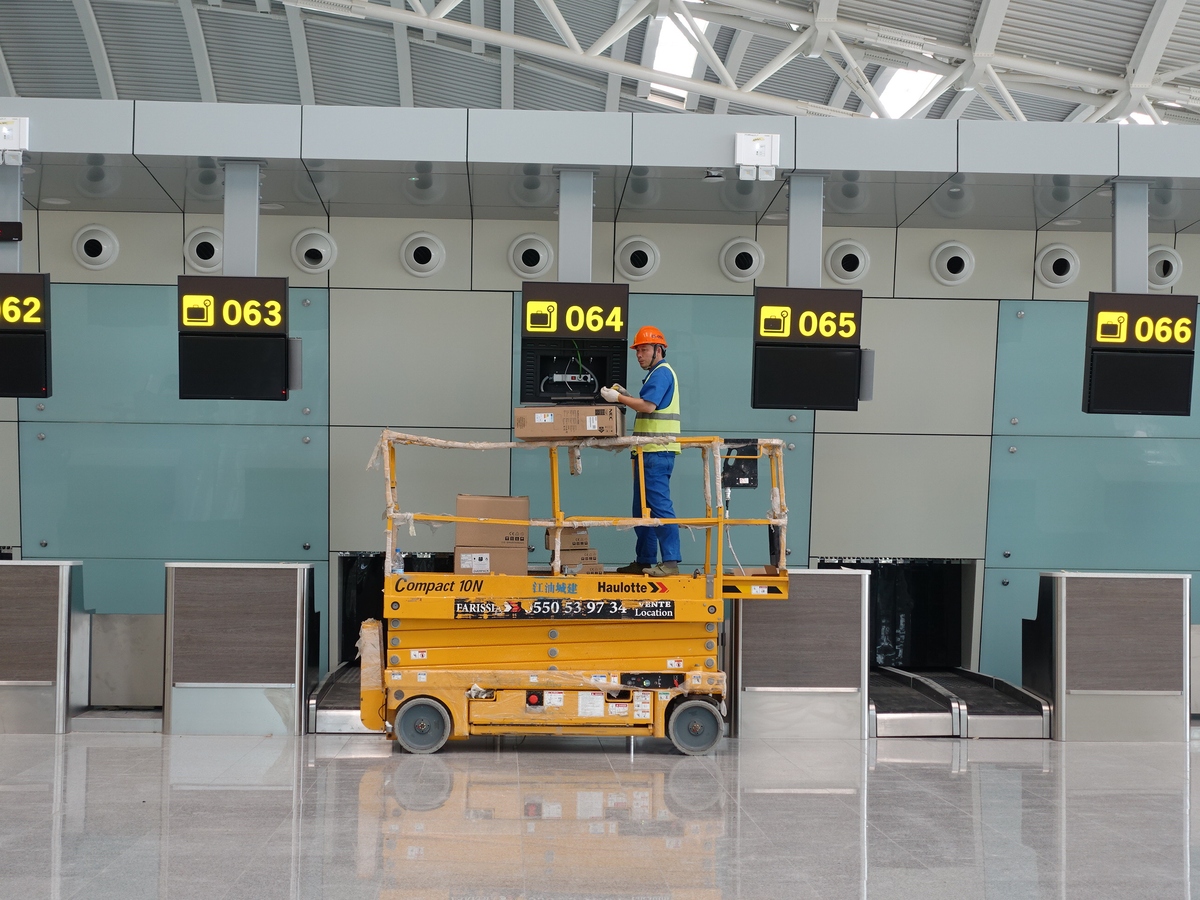Chinese firms energizing local economy


Some 50 kilometers east of Cairo, the capital of Egypt, construction of the Central Business District by China State Construction Engineering Corporation in the African country's new administrative capital is carrying on under the scorching sun.
The new capital is supposed to be one of the solutions to ease the chronic congestion of Cairo, with a demographic burden of more than 20 million inhabitants. Egypt's government institutions are scheduled to move to the new capital in the second half of 2019.
The project will have 20 towers in an area of 1.7 million square meters. Among them, a 385-meter skyscraper is attracting the most attention, as it will become the tallest building in Africa once completed.
CSCEC's project in Egypt is just one of many examples showing China's State-owned enterprises' enthusiasm for the continent.
A number of SOEs are making continued efforts to build infrastructure in Africa, aiming to offer more jobs and stimulate the local economy, and are exploring new models to facilitate construction.
Chang Weicai, chief executive officer of CSCEC's unit in Egypt, said that construction of the new capital is expected to be finished within three-and-a-half years at the most.
The construction work will start in several months after a geological survey, and over 90 percent of workers will be hired locally as required by local regulations, Chang was quoted as saying by Xinhua News Agency.
CSCEC is China's largest construction and real estate conglomerate and the biggest building work contractor. The construction giant sees Africa as a key market, with operations in 51 countries across the continent so far.
In the past five years, the orders that CSCEC has signed with African partners totaled $20.5 billion, the company said in a statement. The company has injected vitality into local economic development, improved local people's livelihood and further deepened China-Africa friendship.
Chinese firms' dominance in Africa's construction and real estate sector is pronounced. They accounted for nearly 50 percent market share of Africa's international EPC (engineering, procurement and construction) market, according to a report by global consulting firm McKinsey& Co.
EPC projects are a common form of contractual arrangement in the construction industry.
One factor driving the expansion is that China's own breakneck pace of infrastructure construction over the past three decades has produced contractors, with some of the most efficient cost structures in the world, according to McKinsey.
In July, the first phase of the Djibouti International Free Trade Zone was launched. It was built by a multi-party joint venture formed by China Merchants Group.
The zone, which is connected to Djibouti's main ports, aims at diversifying the economy, creating new jobs and luring foreign investment through tax-free incentives and full logistical support.
The 240-hectare trade zone will comprise of several major projects, including one main office building expected to be completed in November 2018. Twenty-one companies have signed agreements to operate in the trade zone.
Hu Jianhua, executive vice-president of China Merchants Group (CMG), said: "CMG is open to share its Port-Park-City model experience, the PPC model, which it gained in the past 40 years."
"Djibouti is our top priority based on mutual trust. I'm confident that the Port-Park-City model will be successful in Djibouti," he said.
The trade zone, according to Hu, will not only accommodate the ever-growing demand in logistics, but also cultivate the export processing manufacturing, thus providing sustainable incentives for Djibouti's development and for the rest of its inland partners.
In 2025, Chinese firms in Africa are set to see their revenues reach $440 billion by entering new sectors, up nearly 140 percent from the current level, according to research consultancy McKinsey.




































